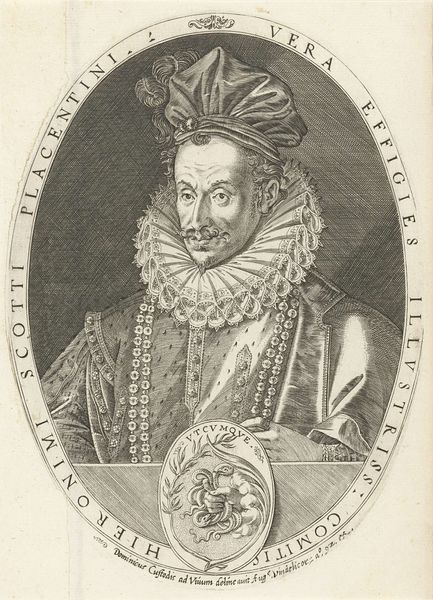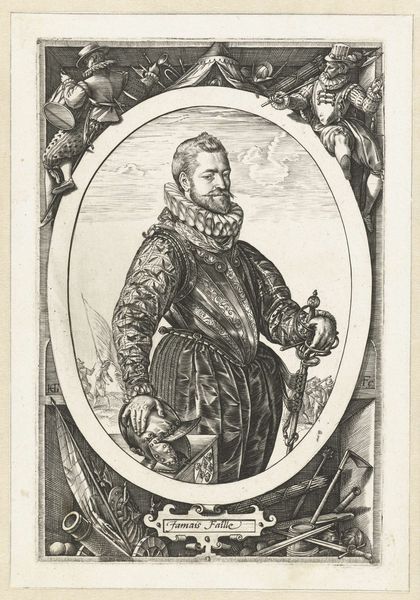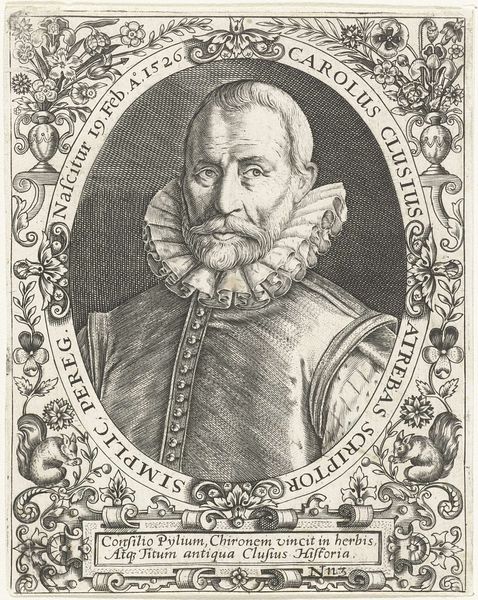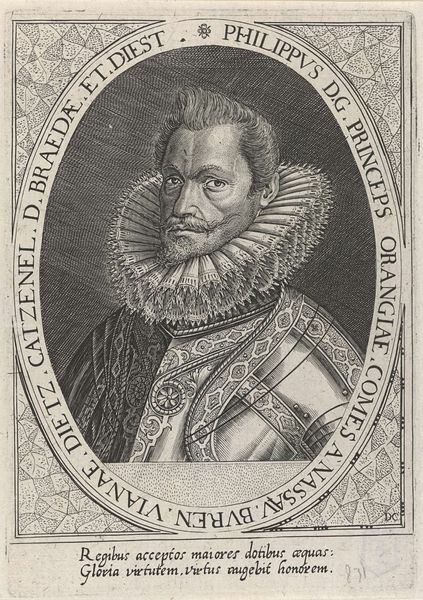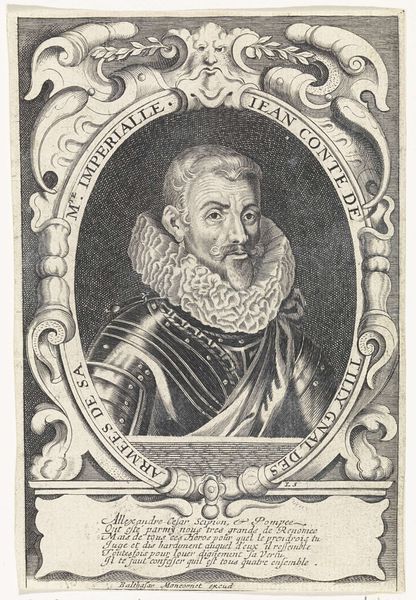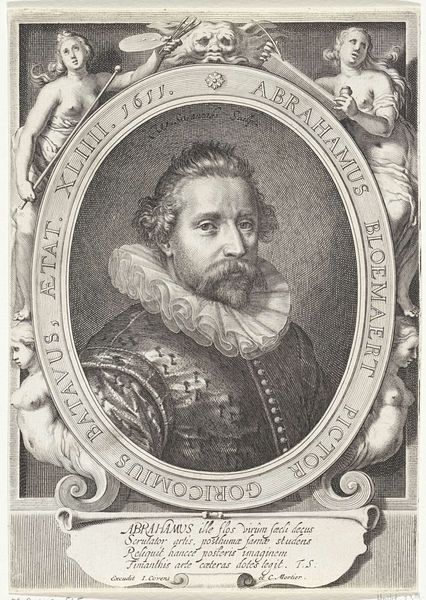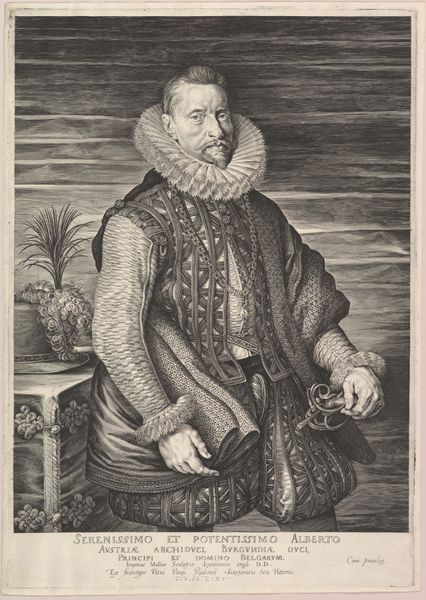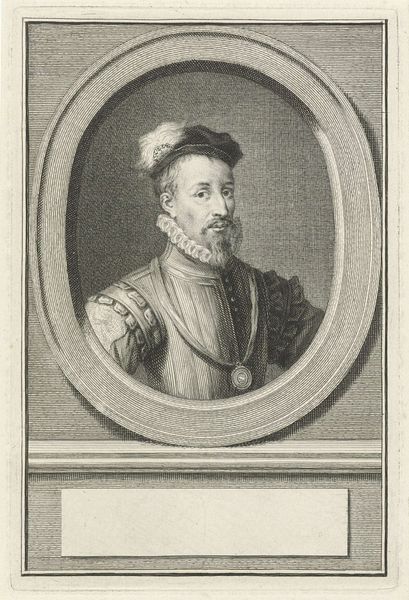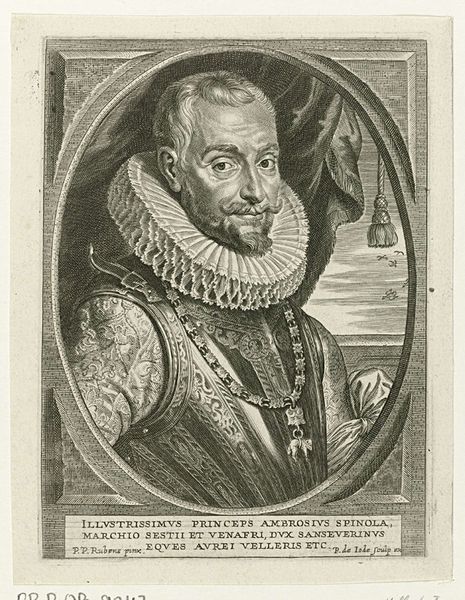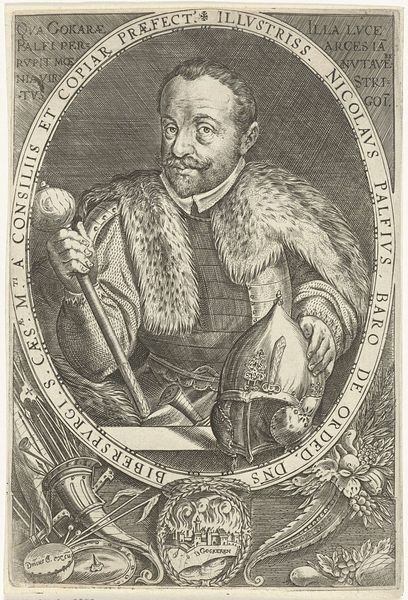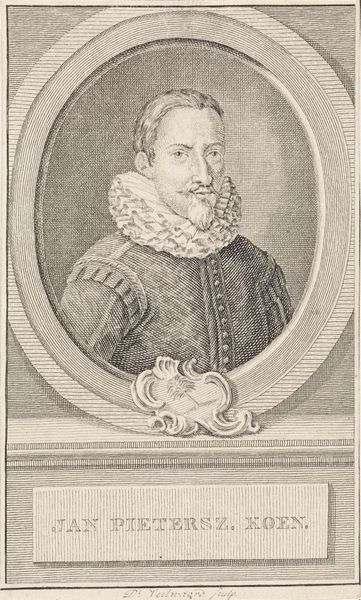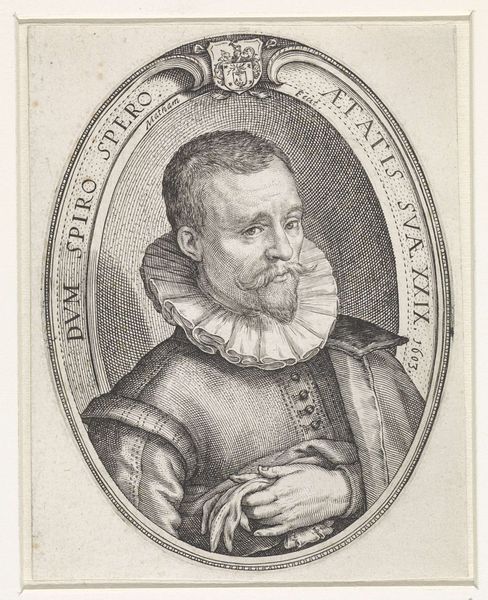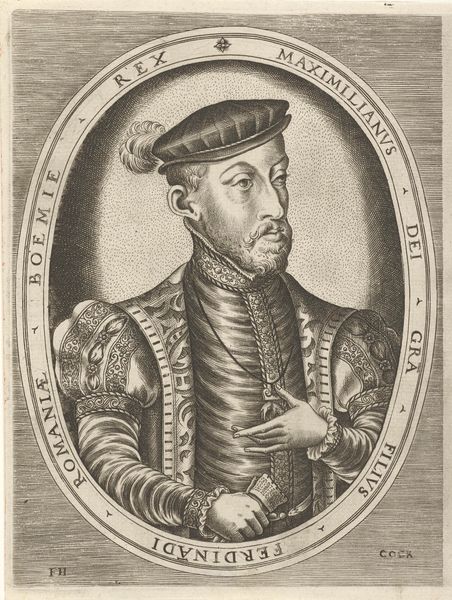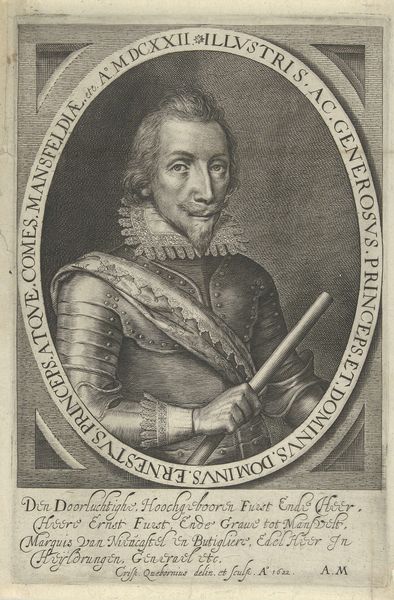
engraving
#
portrait
#
baroque
#
book
#
old engraving style
#
portrait reference
#
portrait drawing
#
history-painting
#
engraving
Dimensions: height 217 mm, width 160 mm
Copyright: Rijks Museum: Open Domain
This engraving of Prince Frederick Otto was made by Wierix, a Flemish artist, sometime between 1550 and 1620. The prince is presented as a figure of authority, surrounded by symbols of his status. Made during the Dutch Golden Age, this portrait reflects a society undergoing significant transformation. The Netherlands was asserting its independence from Spanish rule, and a new merchant class was rising to prominence. Note the Latin inscriptions at the bottom of the print which speak to the Prince's virtues, and also give credit to the artist and the 'ars animi' that shaped this artwork. How does this emphasis on individual skill and moral virtue reflect the changing social values of the time? The rise of Protestantism, with its emphasis on individual responsibility, also played a role. To fully understand this artwork, one must consider the social and political context in which it was created. Scholarly resources such as historical documents, biographies, and art historical analyses can shed light on the complex interplay of forces that shaped Wierix's artistic vision.
Comments
No comments
Be the first to comment and join the conversation on the ultimate creative platform.
